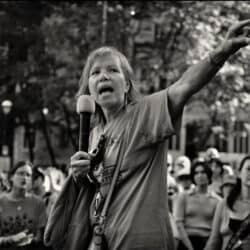First, let us define the term “digital diaspora” for context. We use “diaspora” here as a catchall to describe people who have arrived in Canada from other countries (and, aside from Native Canadians, that is just about everyone), usually fragile nations. Most often these people are or were refugees seeking political asylum or arrived through conflict in their home nation. We include people from these communities up to the third generation. “Digital diaspora,” refers to the presence of these communities online via the Internet, specifically in social media.
Why is understanding these online communities becoming increasingly important? Because they are using social media tools (e.g., Facebook, Twitter, Ning, etc.) to network among themselves and with other communities and to connect with the broader Canadian public. By using these social technologies, they can shape and communicate their message in ways never before possible. Digital diaspora also use these tools to organize events and actions in the communities where they live. At MediaBadger, we have begun an in-depth research program to map digital diaspora communities in Canada. Such research can help government and non-profit organizations to connect with these communities in times of crises, for projects and organizing community events.
For the most part, digital diaspora are using these tools to create awareness of cultural events in their community: fairs, dances, arts, and music concerts. Increasingly, however, they are also using them to create awareness in the broader public of issues in their homelands, from conflict to oppressive regimes. By creating awareness and organizing public rallies, they aim to have an impact on Canada’s foreign policy. As an example, in 2009, the Tamil community in Toronto used social media tools to help organize the rallies that shut down the 401 highway in Toronto. This created awareness of the issues in Sri Lanka and got the attention of the federal government. During the Egypt uprisings in January of this year, tools like Facebook were also used by Egyptian diaspora in Canada to organize support rallies. This showed the Canadian government that the general public and Egyptian diaspora supported the call for democracy in Egypt.
The darker side, of course, is diaspora communities who use these tools to raise funds or organize support for those who would go against Canada, such as terrorists. For the most part, however, diaspora communities use social media for much more positive purposes. At MediaBadger, we have begun mapping these communities for a number of positive purposes that include enabling governments provincially and federally to better understand and respond to the needs of diaspora communities in Canada.
During times of crises, diaspora communities online can provide helpful insights for foreign policy decisions and ensure that aid relief reaches the areas where it is much needed, such as in Haiti. Governments in Canada are slowly beginning to recognize these values, forming policies to engage and respond.
Some larger diaspora communities such as Haitians in Quebec, Tamils in Ontario, Chinese in British Columbia, and so on, can have broader influence on domestic as well as on foreign policy. These communities use social media tools to organize and communicate their positions. For political parties, this can lead to helpful insights both during and after elections. Digital diaspora can also benefit multiculturalism in Canada by presenting their communities in a positive light.
Our research and technology1 is aimed at bringing these digital diaspora communities into focus to enable positive dialogue and deeper engagement between the general public and these groups. With Internet use, and especially the use of social media such as Facebook or Twitter growing, it is increasingly vital to understand what is happening in cyberspace (or Cyburbia, as we term it) and how that translates into action in the real world and influences policies and economies. Such knowledge provides context and depth that has never before been possible, resulting in improved inter-community relationships and dialogue. Before an organization engages in social media activity, it must first understand where its online audience is active, the issues being discussed and the structure of these groups. Diaspora communities vary in their level of social media activity and the tools they use depend on the age groups active and language. While it may appear that a group is active on Facebook, the true activity may be taking place in a closed online community. Research such as ours helps organizations understand these issues so when attempts to connect are made, it is faster and easier and the context in which these communities are using social media is understood from the beginning.
Note
1. A portion of our work will be publicly available through the MediaBadger blog.
Giles Crouch is President and Cofounder of MediaBadger Digital Public Affairs Research. He has 20 years of international experience in marketing, communications, government relations, and business development. Giles has been a guest lecturer on international marketing and social media at universities in Canada, the United States, South Africa, and Botswana. He is also affiliated with a number of charitable organizations. Email: giles@ mediabadger.com

